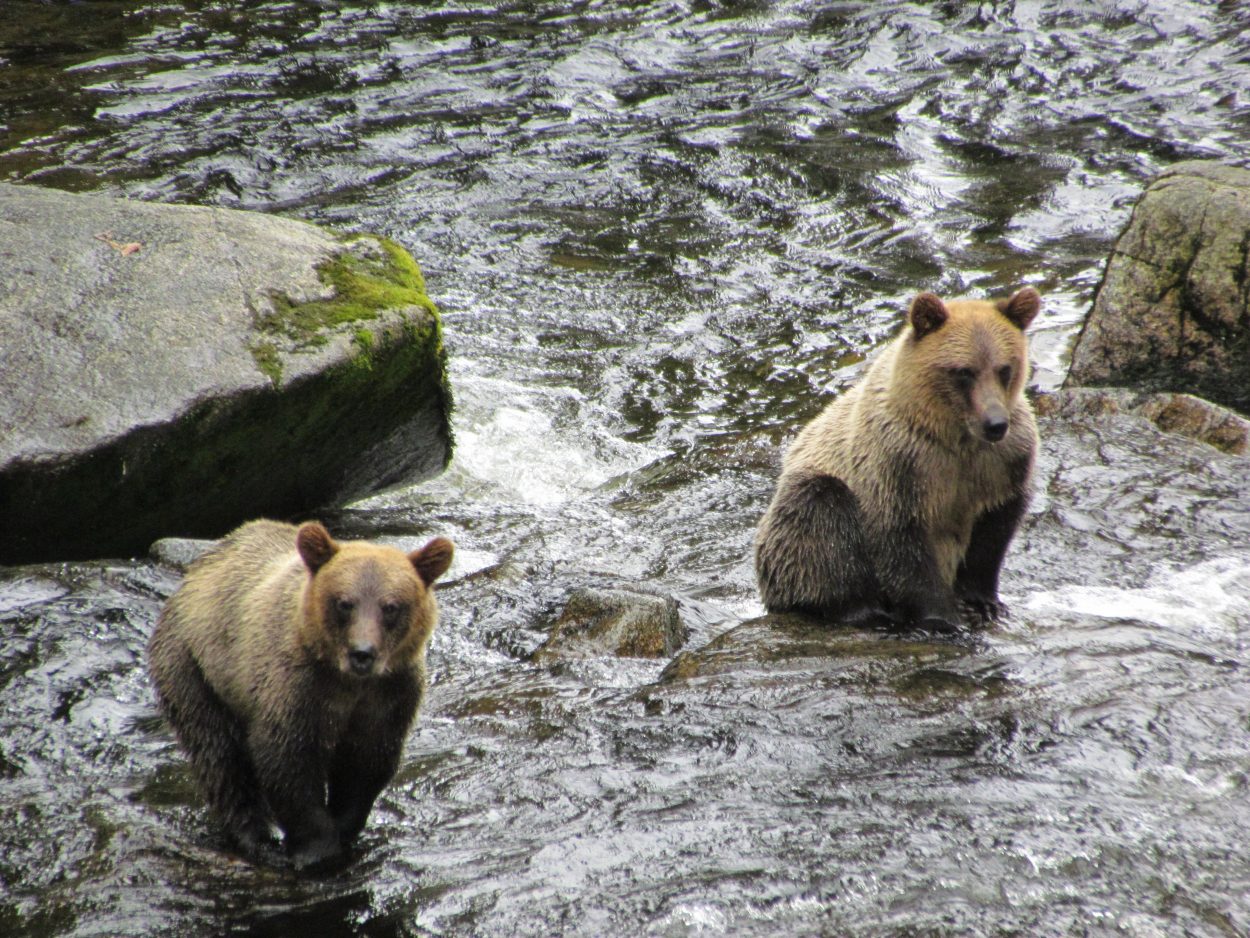Thursday night’s BearFest scientific symposium focused partially on the important role bears play in the overall forest ecosystem. Researcher Barrie Gilbert explained that bears are like the gardeners of the forest. They don’t just eat the salmon; they transport the fish and the nutrients in their bodies far from the river.
“Those nutrients, phosphorus and nitrogen particularly, are carried into the forest. The bears urinate and defecate in the forest. They die in the forest. But fish parts they don’t eat are also left in the forest. And as any gardener knows, if you can get a couple of herring under your rose bush, it’s going to grow a lot better.”
Gilbert says the bears are improving the overall forest ecosystem and helping perpetuate a necessary nutrient cycle. “This transfer of nutrients is a continuing cycle over hundreds of thousands of years and it’s important in transferring nutrients from the ocean up into the highest levels of forest, wherever animals carry the fish. And that therefore makes the land more productive for the fish in return. So it’s a cycle.”
Gilbert says that if fisheries aren’t managed properly, then too few salmon can seriously disrupt the entire cycle.
But bears do more than just reintroduce nutrients and fertilize the soil. They also dig up the soil looking for food. And just like turning a garden, this releases even more nutrients. It creates an ideal growing place for the seeds they deposit through their scat.
“They drop poop on the forest ten times a day in a variety of places because the trails they go on. So this is a seeding mechanism for areas that may or may not have a source of seeds, for example avalanche paths or when glaciers recede there’s barren land left there.”
And how many seeds do they really spread? Millions. Gilbert said they eat berries at two to three bites per second, hosing them down. “I think their big lips are really just like little fingers in some ways, and they’re able to eat groups of berries in bunches. And they bite and suck them off a branch without getting a whole lot of twigs.”
Even with their selective eating habits that focus just on berries or just on salmon brains and roe, bears consume and pass massive quantities of food. Brown bears are known to spend up to 16 hours per day foraging in order to gain five pounds per day. They seek out the salmon not for the protein but for the fat. And what they don’t need, they just give back to the soil to start the cycle again.











